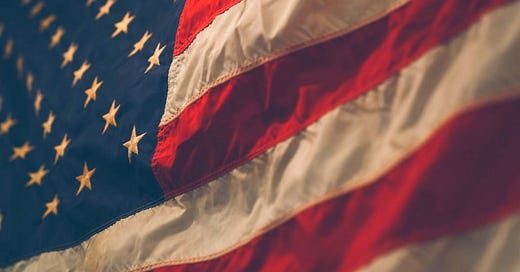
As a politically homeless conservative who has called out a lot of shameless double-standards and embarrassing Trump-slobbering from my fellow righties over the past few years, one area of disagreement I’ve had with other Trump skeptics is the notion that the hypocrites and sycophants will ultimately pay a historical or professional price for their conduct.
I just don't think they will.
We've seen and heard the denunciations many times. “History will remember those who…” they usually begin, whether it’s coming from a news commentary show, an op-ed, or social media. The target in the cross-hairs is typically a Republican member of Congress, former Republican politician, evangelical leader, or cable-news host who just defended behavior or a decision from Trump that they would have (or actually have) excoriated, had it come from the other side.
But does American political history actually punish audacious servility and the surrendering of long-preached principles? While there are examples of it, you’d be hard-pressed to find many from the past 50 years.
Christian Schneider wrote an interesting column for the The Dispatch the other day, in which he looked at the impeachment of Richard Nixon, and how the Republicans and conservatives, whose loyalties and rhetorical defenses went down to the bottom of the ocean on that ship, actually ended up rising to new heights just a few years later.
Schneider points out that conservative syndicated columnist Paul Harvey, who laughed off the notion that Watergate was an act of “political chicanery” (using numerous whataboutisms to defend what Nixon had done), went on to start his very popular “Rest of the Story” radio feature (that I remember listening to as a child as I ate breakfast each morning before going to school).
“Like Harvey, many prominent Republicans would go on to enjoy successful post-Watergate careers,” Schneider writes, “easily sidestepping the possible taint from their vigorous Nixon defenses. And some of Nixon’s critics within the GOP would quickly vaporize, their presidential aspirations vanishing under charges of disloyalty.”
Sounds a bit familiar, doesn't it?
Another, more famous American who remained loyal to Nixon was Ronald Reagan. The governor of California at the time, Reagan insisted that Nixon had been the victim of a “concerted effort in Washington to undermine him and make it appear he is not fit to govern.” Reagan added, “There are some who would destroy a man in order to destroy a mandate of all the people.”
George H.W. Bush was another Nixon loyalist. He claimed that calls for Nixon’s impeachment had been “orchestrated” by Ralph Nader, and he called for scrutinizers to “get off [Nixon’s] back and let the man do the job he was elected to do.”
Schneider writes:
“At the time of both the Reagan and Bush defenses, the House had already conducted impeachment hearings, where White House lawyer John Dean had testified the president was involved in a cover-up of the Democratic National Committee headquarters burglary. Nixon had recently declined to turn over his taped White House conversations to special prosecutor Archibald Cox, had fired Cox in the ‘Saturday Night Massacre,’ and had uttered his memorable ‘I am not a crook’ defense.”
Tribalism may be a hell of a drug, but a professional liability? There’s little evidence of that.
Attention spans are ever shrinking in American culture, and perhaps that’s the historical takeaway that Trump’s prominent loyalists are counting on.
Schneider concurs:
“Such loyalty is a historical lesson heeded by some current conservatives, whose contortions in backing President Donald Trump are simultaneously baffling and laughable. Senators who once bitterly opposed Trump now trample others to get in front of cameras to defend him. Former Trump administration officials who once gave speeches warning against the impulse to govern by triggering Democrats have now commenced what can only be called an 'owning the libs' world tour in defense of Trump.”
The same lesson has clearly been learned by numerous evangelical leaders and media-conservatives who would be locked in an epic battle with the rhetoric of their previous, pre-Trump selves... if not for the historical insignificance of hypocrisy and political obedience.
And it's that same archival immateriality that will allow them to return to their roots, and probably even thrive in their more traditional roles, once the Trump era is over.
For those who believe in karma, perhaps some retribution will come in that form. But don't expect it to come from history.
—












